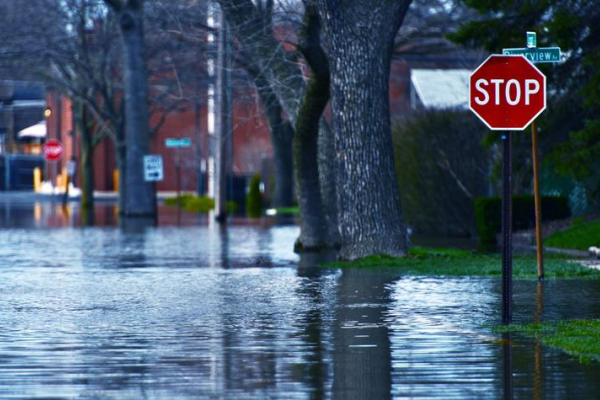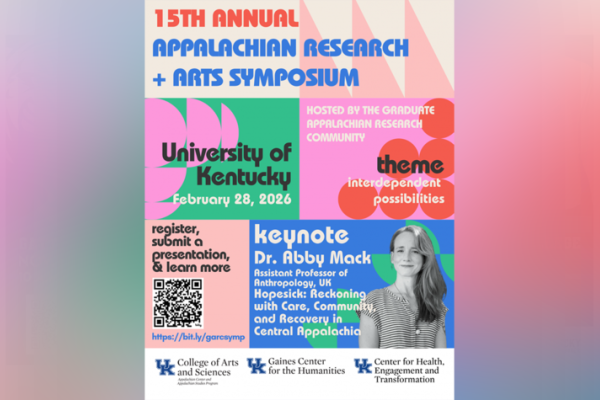Prestigious NSF award advances UK researcher’s low-cost water treatment work
Video by Ben Corwin, Jeremy Blackburn and Alicia Gregory, Research Communications
Along the rivers that snake across the Commonwealth, you’ll find a University of Kentucky researcher taking samples to study the health of the water flowing through the state.
Tiffany Messer, Ph.D., an assistant professor of biosystems and agricultural engineering, a joint program between the College of Engineering and College of Agriculture, Food and Environment, studies ways to improve water quality in rural and urban areas.
For her innovative approach, Messer is the recipient of the National Science Foundation (NSF) Faculty Early Career Development (CAREER) Award.
The honor is one of the “most prestigious awards in support of the early career-development activities of teacher-scholars who most effectively integrate education and research within the context of their organization’s mission,” according to the NSF.
“This is a unique opportunity for me to be able to connect both teaching and research aspects of my work and really be able to give back to the Commonwealth versus just studying a particular component of interest. Instead, we can connect what we find in research with communities that can apply our findings to everyday solutions,” said Messer.
The award supports Messer with $530,000 over five years for her research on cost-effective wetland treatment systems and how they can filter contaminants, like nitrate, insecticides and antibiotics, from water runoff. She is using state-of-the-art tracers and automated sensing technology to determine how these contaminants impact the ecosystem.
“We are going to be studying these cocktails of contaminants that are occurring in our rivers around the state and then finding methods for treating and removing these particular contaminants so that we have better water for our people, environment and the overall ecology of our water systems,” said Messer.
Her team of undergraduate and graduate students is analyzing how emerging contaminants such as insecticides and antibiotics can impair nutrient removal and lead to issues like toxic algal blooms that cause health challenges, impact drinking water sources and inhibit farming and cattle production in Kentucky. The team also collects water samples and uses the data to create miniature wetlands in Messer’s UK greenhouse to assess potential cost-effective treatment practices.
“Wetlands are actually fantastic at being able to remove chemicals from the environment,” said Messer. “We’re enriching those wetlands with different chemicals and then seeing what happens. We’re also evaluating if different types of plant species and soils could be implemented in regions of Kentucky as cost-effective treatment options.”
Her team’s floating treatment wetlands are already being used in urban areas of the Midwest. The systems float on mats in ponds to help purify the water without taking away farmland. It’s a solution that has Messer excited.
“I grew up in an Appalachian area of Kentucky. Getting to come up with some of these new innovative and creative but also cost-effective measures that can be implemented in the region I grew up in is always exciting,” said Messer.
Messer’s project also includes an educational outreach component aimed at high school students in four regions of the Commonwealth: agricultural areas in Western Kentucky, mining areas in Appalachia, natural resource areas in the Red River Gorge region and urban areas like Lexington.
Students from those four areas of interest will learn ways to improve water quality and will design potential ecosystem-based water quality treatment systems for their areas. Students from rural and urban areas will also share observations and discuss local water quality issues.
Messer says the most challenging part of this project is connecting with the communities to do on-the-ground research outside of her UK lab. Equally important is building trust so her team can study these regions and create a network of students, teachers and researchers to share valuable information that ultimately benefits Kentucky.
“Being able to connect what we find in the lab and in the field and then be able to communicate that to our communities through the UK Cooperative Extension Service is critical. That’s why being part of a land-grant institution is so valuable,” said Messer.
Research reported in this publication was supported by the National Science Foundation under Award Number 2042761. The opinions, findings, and conclusions or recommendations expressed are those of the author(s) and do not necessarily reflect the views of the National Science Foundation.

